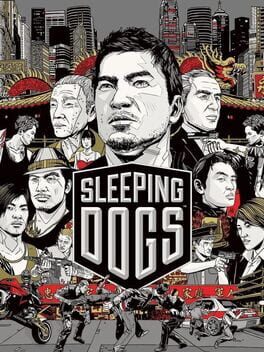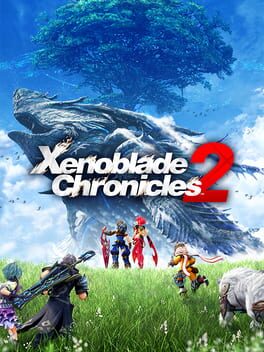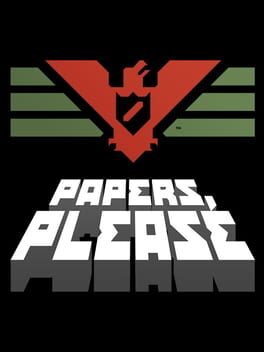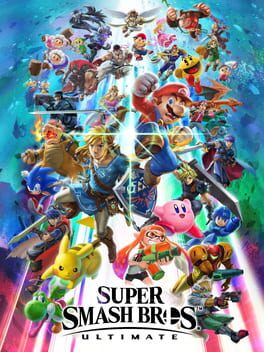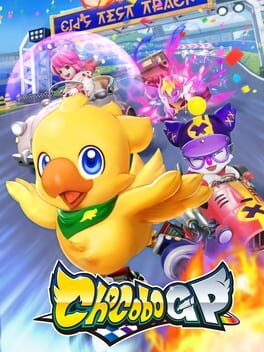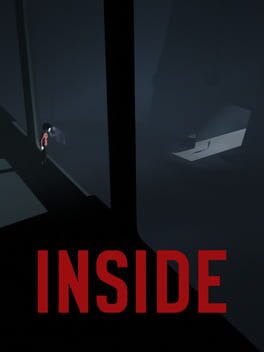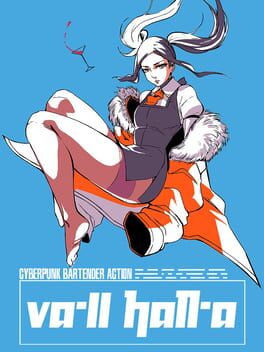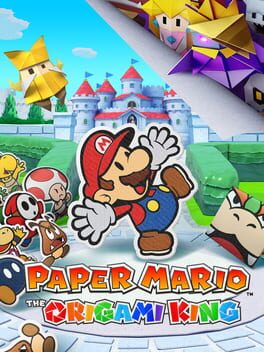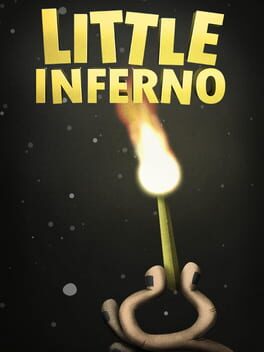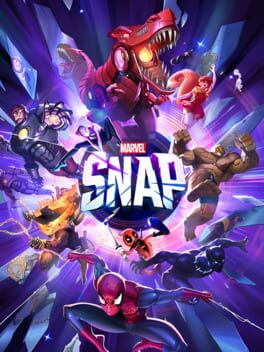123 Reviews liked by Van
Outer Wilds
2019
(Score: 10/10) A trascendental experience. A meditative reflection on our own mortality, the wonders and horrors of discovery, and what it truly means to belong in this universe. One of the few games to ever actually make me full on sob, and it happened in a seemingly random moment where the reality of what I was playing finally hit me and fully set in. This is a game I wish everyone would play, even non-gamers, and it should be one of the first examples people bring up in the "are video-games art?" debate instead of TLoU (not a diss on that game even though I find it really overrated, but there's simply something about the way Outer Wilds reveals its story to you that can only be achieved through an interactive medium like video-games, whereas TLoU's story could be told through many other different mediums). This game is the first massive leap in storytelling in videogames since Dark Souls and Undertale, and the story it tells is profoundly contemplative and life-changing. An unforgettable experience that I wish everyone could live the same way as I did. The only flaw this game has is that you can only play it for the first time once, but in a way that's also its biggest strength.
Sleeping Dogs
2012
Sleeping Dogs is a really good game, it just needs a bit more to make it a classic. The story is by far the best part about this game. Wei is an interesting protagonist and his story keeps you hooked until the end. The combat is very rough around the edges (there is one combo that completely folds 90% of the enemies, and gunplay is rather lacking) but it's fun enough. I think the game could have used more depth overall. Improved combat, more developed minigames, and a longer campaign (to add more depth to the characters) would improve this game in my opinion. It struggles to break out of the "GTA/Yakuza Clone" mold, and that's a shame. Sleeping Dogs does so much right, and it's unfortunate that it will likely never get a sequel. The developers made something with tons of potential.
Vampire Survivors
2022
Dopamine tickler, the video game. Luca Galante puts his past experience as a gambling software programmer to good use here - Vampire Survivors is mesmerizing in its ability to give the player continuous positive feedback and string them along with constant rewards. Vampire Survivors, unlike a casino, does not ask much of your wallet. This game is surely a product of joy and passion. It delivers an insistently fun experience that is an easy recommendation to near anyone. The majority of runs are timed in a way that makes Vampire Survivors a near perfect "pick up and play" title on any platform one might choose to experience it on.
Having now played this game almost every day for the better part of a month, clocking roughly 60 hours and being not-quite-halfway through the story, some thoughts:
I don't know how much of this analysis was incepted into my head by seeing the thumbnail for a video essay about the problem of sexualization in this game, or from hearing how embarrassing a friend found it to play in front of his girlfriend, or if it all just formed perfectly core-crystalline as soon as I saw Dahlia, but jesus christ the character designs are humiliating. They're tacky, they're ugly and (granted, I'm not the target demo) I don't think they're sexy. They're horny (pej.) in the way that someone who has only heard about sex in anime thinks is horny.
With that out of the way, I cannot tell what I think about this game. As mentioned, I've played it for 60+ regular, leisurely hours almost all of which I've enjoyed, but there are some truly terrible design choices that undermine that enjoyment in a way that's worth emphasizing.
The gacha mechanic is baffling, and profoundly out of place both mechanically and thematically. The mercenary missions seem to exist exclusively as a ballast for the gacha mechanic and feel divorced from everything else in the game. This makes popping into the menu every half-hour (or ten minutes if you're doing Ursula's blade missions) to make some fussy but unimportant decisions about team composition even more of a momentum killer than it might be if there was any sense of urgency to it.
On the positive side, the combat system is as labyrinthine and compelling as people say, feeling pleasantly tricky to maximize (if not optimize). The blade affinity system can be satisfying to fill up, though the number of blades you're invited to do this for makes it feel like busywork. I find the world itself genuinely compelling, with the Titans being reliably strange and interesting to explore (when you're able to hold the idea of each island being a creature rather than dissociating into gamer-brained MMO map mode, which everything in this game desperately tries to make you do).
I will, somehow, keep pushing through this game. I'm hoping the story is at least as interesting as people say. I've always had a soft spot for the overwrought pseudo-religious grandeur of the Xeno-series, and I feel pretty confident there's some of that coming down the pipe.
I don't know how much of this analysis was incepted into my head by seeing the thumbnail for a video essay about the problem of sexualization in this game, or from hearing how embarrassing a friend found it to play in front of his girlfriend, or if it all just formed perfectly core-crystalline as soon as I saw Dahlia, but jesus christ the character designs are humiliating. They're tacky, they're ugly and (granted, I'm not the target demo) I don't think they're sexy. They're horny (pej.) in the way that someone who has only heard about sex in anime thinks is horny.
With that out of the way, I cannot tell what I think about this game. As mentioned, I've played it for 60+ regular, leisurely hours almost all of which I've enjoyed, but there are some truly terrible design choices that undermine that enjoyment in a way that's worth emphasizing.
The gacha mechanic is baffling, and profoundly out of place both mechanically and thematically. The mercenary missions seem to exist exclusively as a ballast for the gacha mechanic and feel divorced from everything else in the game. This makes popping into the menu every half-hour (or ten minutes if you're doing Ursula's blade missions) to make some fussy but unimportant decisions about team composition even more of a momentum killer than it might be if there was any sense of urgency to it.
On the positive side, the combat system is as labyrinthine and compelling as people say, feeling pleasantly tricky to maximize (if not optimize). The blade affinity system can be satisfying to fill up, though the number of blades you're invited to do this for makes it feel like busywork. I find the world itself genuinely compelling, with the Titans being reliably strange and interesting to explore (when you're able to hold the idea of each island being a creature rather than dissociating into gamer-brained MMO map mode, which everything in this game desperately tries to make you do).
I will, somehow, keep pushing through this game. I'm hoping the story is at least as interesting as people say. I've always had a soft spot for the overwrought pseudo-religious grandeur of the Xeno-series, and I feel pretty confident there's some of that coming down the pipe.
Papers, Please
2013
Chocobo GP
2022
Disco Elysium: The Final Cut is a masterpiece.
The game exemplifies the medium’s ability to tell powerful and important stories in ways no other artform can. By intertwining the mechanics of how games simulate roleplaying and storytelling with the stats of the player character, Disco Elysium manages to put the player in a liminal space few games achieve — where your agency as the player is constantly challenged by the life choices of the protagonist before the story began. And though your motivations as the player typically align with the protagonists, the game uses its stats system and dice rolls as a wild card to disrupt your progress. It’s an incredibly affecting approach to narrative, and Disco Elysium uses it to invoke sympathy and affection for a terrible, and terribly sad, man.
In addition to its stellar narrative — achieved in large part through the game’s writing and the voice actors that narrate it — DE has a beautiful oil-painting art style that makes its derelict city streets come to life, a soundtrack and sound design that immerse the player in the game’s melancholy-yet-occasionally-hopeful world, and gameplay mechanics and systems that build on the standard fare of RPGs in new ways that reinforce the central narrative of the game.
What I love about Disco Elysium: The Final Cut
• Kim Kitsuragi, the greatest brand-new best friend in all of gaming.
• Its sense of humor, which, depending on the player’s choices, bounces between self-loathing, slapstick, cynical observations and light-hearted dialog but never feels forced or untrue.
• The game captures the feeling of making deductions and solving a mystery in a way that no other game I’ve ever played does.
• The writing is richly detailed and evocative while supporting dozens of characters with distinct voices. Few games’ worlds feel as alive as Revachol, and those tend to be much larger in scope. DE manages it with some of the most beautiful and honest prose to be found in gaming.
• The voice performances, soundtrack and sound design, and art style all come together to support the writing and add depth to the experience.
• RPG mechanics that don’t capture just a physical, external representation of a person but also the mental, internal aspects of a character.
Why you might want to skip Disco Elysium: The Final Cut
• If you’re experiencing real-life news/politics burnout, you may want to hold off. DE is an intensely political game in both its text and subtext. The game viscerally depicts the lived experiences of people suffering from multiple levels of uncaring and mismanaged governance.
• If you hate reading. Most of DE’s gameplay is spent reading/listening to dialog and descriptions of people, places, and scenes. Or walking at a moderate pace to reach… the next scene in which you’ll read/listen to dialog and descriptions.
• If you hate being confused. DE makes you experience its world as an amnesiac, and, as a result, you spend a lot of time hearing terms and Proper Nouns you don’t understand until you find someone to explain things to you.
The game exemplifies the medium’s ability to tell powerful and important stories in ways no other artform can. By intertwining the mechanics of how games simulate roleplaying and storytelling with the stats of the player character, Disco Elysium manages to put the player in a liminal space few games achieve — where your agency as the player is constantly challenged by the life choices of the protagonist before the story began. And though your motivations as the player typically align with the protagonists, the game uses its stats system and dice rolls as a wild card to disrupt your progress. It’s an incredibly affecting approach to narrative, and Disco Elysium uses it to invoke sympathy and affection for a terrible, and terribly sad, man.
In addition to its stellar narrative — achieved in large part through the game’s writing and the voice actors that narrate it — DE has a beautiful oil-painting art style that makes its derelict city streets come to life, a soundtrack and sound design that immerse the player in the game’s melancholy-yet-occasionally-hopeful world, and gameplay mechanics and systems that build on the standard fare of RPGs in new ways that reinforce the central narrative of the game.
What I love about Disco Elysium: The Final Cut
• Kim Kitsuragi, the greatest brand-new best friend in all of gaming.
• Its sense of humor, which, depending on the player’s choices, bounces between self-loathing, slapstick, cynical observations and light-hearted dialog but never feels forced or untrue.
• The game captures the feeling of making deductions and solving a mystery in a way that no other game I’ve ever played does.
• The writing is richly detailed and evocative while supporting dozens of characters with distinct voices. Few games’ worlds feel as alive as Revachol, and those tend to be much larger in scope. DE manages it with some of the most beautiful and honest prose to be found in gaming.
• The voice performances, soundtrack and sound design, and art style all come together to support the writing and add depth to the experience.
• RPG mechanics that don’t capture just a physical, external representation of a person but also the mental, internal aspects of a character.
Why you might want to skip Disco Elysium: The Final Cut
• If you’re experiencing real-life news/politics burnout, you may want to hold off. DE is an intensely political game in both its text and subtext. The game viscerally depicts the lived experiences of people suffering from multiple levels of uncaring and mismanaged governance.
• If you hate reading. Most of DE’s gameplay is spent reading/listening to dialog and descriptions of people, places, and scenes. Or walking at a moderate pace to reach… the next scene in which you’ll read/listen to dialog and descriptions.
• If you hate being confused. DE makes you experience its world as an amnesiac, and, as a result, you spend a lot of time hearing terms and Proper Nouns you don’t understand until you find someone to explain things to you.
Perfect Stride
TBD
Tender Frog House
2020
It is perhaps an all too common occurrence to encounter those who would seek to use the medium of video games as a means of exploring the complex and multifaceted theories of Theodor Adorno, particularly his ideas surrounding aesthetic theory and the ways in which it relates to the perpetuation of neoliberal hegemony. While it is certainly true that video games, like any other cultural form, can be analyzed and interpreted through various theoretical lenses, it is important to recognize that such an approach is ultimately futile, as it fails to take into account the complex and nuanced nature of both video games and Adorno's theories.
To begin with, it is essential to acknowledge the fact that video games are a highly diverse and multifaceted medium, encompassing a wide range of genres, themes, and gameplay mechanics. As such, it is impossible to explore the aesthetic theories of Adorno in any meaningful way through the lens of "wholesome" video games alone, as these games represent only a small fraction of the medium as a whole. To truly understand the ways in which Adorno's ideas might be relevant to the medium of video games, one would need to consider a much broader range of games, including those that might be considered more "edgy" or "provocative" in nature.
Furthermore, it is important to recognize that Adorno's theories, particularly those related to aesthetic theory, are highly complex and nuanced, and cannot be fully understood or appreciated through a superficial analysis of any single cultural form. Adorno's ideas are rooted in a deep and critical engagement with the broader social, cultural, and economic context in which they were developed, and to truly understand their relevance and significance, one must consider these broader contexts as well.
Finally, it is essential to acknowledge the fact that video games, like any other cultural form, are not inherently political or ideological, and that they can be used to convey a wide range of ideas and perspectives. While it is certainly possible to analyze the ways in which video games might reflect or challenge existing power structures and ideologies, it is important to approach this analysis with a critical and nuanced understanding of the context in which the games are produced and consumed. To suggest that the medium of video games can be used as a means of exploring the intricacies of Adorno's aesthetic theory and the ways in which it relates to neoliberal hegemony is to oversimplify and misunderstand both the medium and the theory in question. So, in conclusion, it is ultimately futile to attempt to explore the aesthetic theory behind neoliberal hegemony through the medium of so-called "wholesome" video games, as such an approach fails to take into account the complex and multifaceted nature of both the medium and the theory in question.
To begin with, it is essential to acknowledge the fact that video games are a highly diverse and multifaceted medium, encompassing a wide range of genres, themes, and gameplay mechanics. As such, it is impossible to explore the aesthetic theories of Adorno in any meaningful way through the lens of "wholesome" video games alone, as these games represent only a small fraction of the medium as a whole. To truly understand the ways in which Adorno's ideas might be relevant to the medium of video games, one would need to consider a much broader range of games, including those that might be considered more "edgy" or "provocative" in nature.
Furthermore, it is important to recognize that Adorno's theories, particularly those related to aesthetic theory, are highly complex and nuanced, and cannot be fully understood or appreciated through a superficial analysis of any single cultural form. Adorno's ideas are rooted in a deep and critical engagement with the broader social, cultural, and economic context in which they were developed, and to truly understand their relevance and significance, one must consider these broader contexts as well.
Finally, it is essential to acknowledge the fact that video games, like any other cultural form, are not inherently political or ideological, and that they can be used to convey a wide range of ideas and perspectives. While it is certainly possible to analyze the ways in which video games might reflect or challenge existing power structures and ideologies, it is important to approach this analysis with a critical and nuanced understanding of the context in which the games are produced and consumed. To suggest that the medium of video games can be used as a means of exploring the intricacies of Adorno's aesthetic theory and the ways in which it relates to neoliberal hegemony is to oversimplify and misunderstand both the medium and the theory in question. So, in conclusion, it is ultimately futile to attempt to explore the aesthetic theory behind neoliberal hegemony through the medium of so-called "wholesome" video games, as such an approach fails to take into account the complex and multifaceted nature of both the medium and the theory in question.
Inside
2016
My expectations were low. I DID like sticker star, but i skipped color splash. I knew we were never going to get another TTYD. That said, I was genuinely suprised, and like this game nearly as much. I had a blast and the characters/partners were pretty good. A worthy successor, even if you didnt like the other two "new era" games. Battle system was weak and annoying though, and I miss the RPG format. This was the area in which it lacked.
Little Inferno
2012
This really holds up quite well. Feels like it's from a totally different era of indie games where they were devs were translating what used to be ambitious flash games to full releases that felt like passion projects.
The core gameplay of this is still fun. Setting stuff on fire never really gets old and the combos are a great way to get you to experiment and drive your progress. Some objects and combos are definitely much cooler than others where as some are just blatant fodder to help get you some quick cash. It can be a little disappointing when something cool sounding just ends up burning with zero fanfare.
Also man does that fire still look really damn good!
The core gameplay of this is still fun. Setting stuff on fire never really gets old and the combos are a great way to get you to experiment and drive your progress. Some objects and combos are definitely much cooler than others where as some are just blatant fodder to help get you some quick cash. It can be a little disappointing when something cool sounding just ends up burning with zero fanfare.
Also man does that fire still look really damn good!
Marvel Snap
2022
Marvel Snap ist für mich die Überraschung des Jahres.
Auf den ersten Blick ist es ein sehr simples und kurzweiliges Kartenspiel, doch es gibt wirklich eine Vielzahl taktischer Spielmechaniken. Außerdem ist die Langzeitmotivation hoch, da man über einen Recht langen Zeitraum neue und komplexere Karten freischaltet.
Das wichtigste ist aber, dass die Partien kurz und spaßig sind. Marvel Snap ist ein super Handyspiel, dass man einfach spielen kann wenn man Mal 5 Minuten Zeit hat. Allerdings ist es nicht das klassische Mobile Game Junkfood sondern ein wirklich gut durchdachtes Kartenspiel ohne Pay to Win.
Negativ zu bewerten sind allerdings die recht vielen Mechaniken, welche offensichtlich von einem Team von Psychologen ausgetüftelt wurden, um Spieler möglichst schnell süchtig zu machen und lange zu binden.
Auf den ersten Blick ist es ein sehr simples und kurzweiliges Kartenspiel, doch es gibt wirklich eine Vielzahl taktischer Spielmechaniken. Außerdem ist die Langzeitmotivation hoch, da man über einen Recht langen Zeitraum neue und komplexere Karten freischaltet.
Das wichtigste ist aber, dass die Partien kurz und spaßig sind. Marvel Snap ist ein super Handyspiel, dass man einfach spielen kann wenn man Mal 5 Minuten Zeit hat. Allerdings ist es nicht das klassische Mobile Game Junkfood sondern ein wirklich gut durchdachtes Kartenspiel ohne Pay to Win.
Negativ zu bewerten sind allerdings die recht vielen Mechaniken, welche offensichtlich von einem Team von Psychologen ausgetüftelt wurden, um Spieler möglichst schnell süchtig zu machen und lange zu binden.

